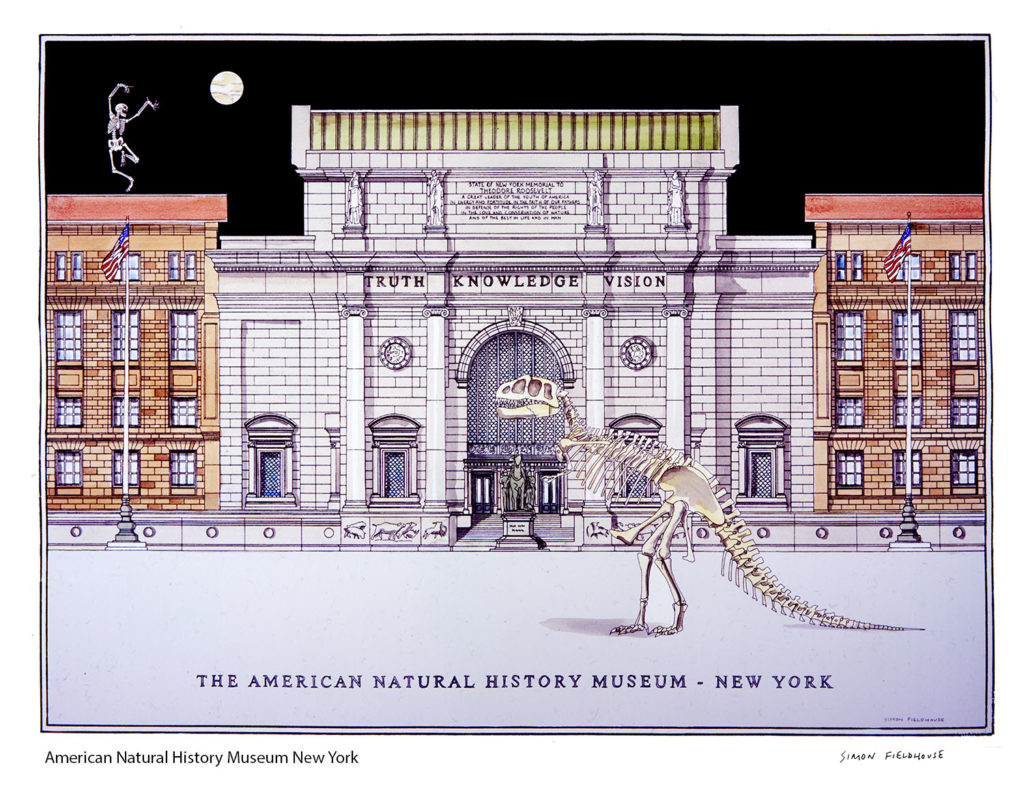
American Museum Natural History New York
The American Museum of Natural History (abbreviated as AMNH), located on the Upper West Side of Manhattan, New York City, is one of the largest museums in the world. Located in park-like grounds across the street from Central Park, the museum complex comprises 27 interconnected buildings housing 45 permanent exhibition halls, in addition to a planetarium and a library. The museum collections contain over 32 million specimens of plants, humans, animals, fossils, minerals, rocks, meteorites, and human cultural artifacts, of which only a small fraction can be displayed at any given time, and occupies 2,000,000 square feet (190,000 m2). The museum has a full-time scientific staff of 225, sponsors over 120 special field expeditions each year,[5] and averages about five million visits annually.
The mission statement of the American Museum of Natural History is: "To discover, interpret, and disseminate—through scientific research and education—knowledge about human cultures, the natural world, and the universe."
Before construction of the present complex, the museum was housed in the Arsenal building in Central Park. Theodore Roosevelt, Sr., the father of the 26th U.S. President, was one of the founders along with John David Wolfe, William T. Blodgett, Robert L. Stuart, Andrew H. Green, Robert Colgate, Morris K. Jesup, Benjamin H. Field, D. Jackson Steward, Richard M. Blatchford, J. P. Morgan, Adrian Iselin, Moses H. Grinnell, Benjamin B. Sherman, A. G. Phelps Dodge, William A. Haines, Charles A. Dana, Joseph H. Choate, Henry G. Stebbins, Henry Parish, and Howard Potter. The founding of the museum realized the dream of naturalist Dr. Albert S. Bickmore. Bickmore, a one-time student of Harvard zoologist Louis Agassiz, lobbied tirelessly for years for the establishment of a natural history museum in New York. His proposal, backed by his powerful sponsors, won the support of the Governor of New York, John Thompson Hoffman, who signed a bill officially creating the American Museum of Natural History on April 6, 1869.